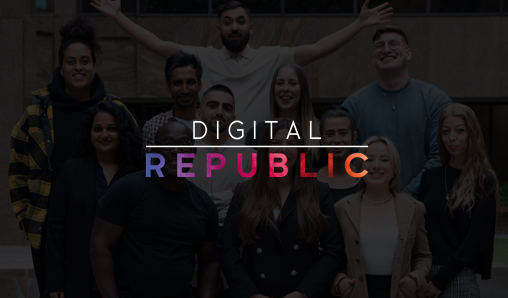
The UK’s New Immigration Rules After Brexit: Five Things Employers Should Do
Four years of Brexit uncertainty and counting. Add the severe impacts of a global pandemic and many employers of people in the UK are unprepared for the new immigration system starting on 1 January 2021.
According to a survey by campaign group the 3 million, only 14% of companies said they were clear on the new rules on employing EU citizens after free movement ends on 31 December 2020.
For the first time, many European workers relocating to the UK or engaging in short work projects in the UK will need to apply for a sponsored work visa before travel. This applies whether their employing group is based in the Americas, China, the EU or elsewhere.
Some employers have delayed preparing for the changes, assuming a solution will be linked to the outcome of the EU/UK trade negotiations. But citizens’ rights were agreed earlier in a Withdrawal Agreement and are now fixed. So, as we know the outline of the UK’s proposed post-Brexit system, we’re able to say with some certainty what employers should be doing now to prepare.
How will the changes affect your business?
Except for Irish citizens, the same basic immigration rules will apply to all non-British citizens arriving in the UK to live, work or study after the end of 2020. The free movement exemption for citizens of the European Economic Area and Switzerland (which we’ll refer to collectively as “EEA” here) will be removed.
So, for example, German, French and Dutch citizens moving to the UK from 1 January 2021 will face the same immigration restrictions that apply already to US, Indian or Chinese citizens. Where required, they will need to apply for an appropriate visa before travelling to the UK. Irish citizens do not need to apply for UK immigration status due to pre-existing Common Travel Area arrangements.
Not every EEA citizen will need to apply for a visa when spending time in the UK. The requirement to apply for a visa will not apply to:
- EEA citizens and their families already living in the UK by 31 December 2020, on condition that they apply to the EU Settlement Scheme (EUSS) by 30 June 2021. Status under that scheme is free, digital, and provides an ongoing right to live, work and study in the UK after the Brexit transition period ends.
- EEA citizen travellers who live outside the UK and want to visit the UK for business or tourism on short trips. With some limited exceptions, they can still visit using their passport as they always have – but they may need to do more to justify their intended trip at the UK border. Most visitors can only carry out certain permitted business activities, such as business meetings, scoping out projects to be performed overseas, and attending conferences. Unless it’s a permitted paid engagement under the rules, visitors cannot “work” – which includes work placements, internships or filling a temporary gap in UK headcount – even for short periods. There is no “grace period” during which travellers can work before needing a work visa, regardless of the location of their employer. Nor can visitors make the UK their main home. Border officials can check whether they are trying to do this by looking at length of intended stay, frequency of trips to the UK or the visitor’s personal circumstances.
Five things to do now to get ready for the new system
1. Review and understand the new rules
The headline point is the removal of free movement rules from 1 January 2021, so that EEA citizens arriving in the UK are treated the same as non-Europeans. And the same is true for British workers moving to Europe. But there are also welcome concessions for employers too, to make it easier for businesses to move people to the UK.
- Scrapping the Resident Labour Market test, so no need to prove that there are no suitably qualified British workers before sponsoring.
- Suspending the visa cap/quota for hires from outside the UK, so no need to request “restricted” certificates of sponsorship.
- Lowering the minimum skill level for the UK role from RQF level 6 (graduate level) to level 3 (equivalent to school leaving A-level), meaning a wider pool of roles will qualify.
- Reducing the minimum annual salary level to a higher of £25,600 and the minimum required for the specific job. Reductions to that rate are available for “new entrants” (including UK graduates) or by using permitted trade-offs between salary and other factors, such as the role appearing on the Shortage Occupation List. Minimum salary depends partly on the specific role being performed but using concessions it can drop as low as £20,480 in some circumstances.
- Sponsors should check now whether their UK roles that may need to be filled by sponsored workers meet the minimum requirements. You can see more information in Annex 9 of the Sponsor Guidance and, to assess which roles might qualify, the Appendix Skilled Occupations section of the new draft rules.
Business operating in the UK and the EU should understand that the same principles will be mirrored for British citizens wanting to move to an EEA country from January 2021, except that visa eligibility, conditions and application process will differ from country to country. Each EEA country has its own domestic rules for non-European workers. Ask us if you need more advice on this.
2. Make sure you meet sponsorship requirements
If you have time to go through the government’s Brexit tool, the likely advice it gives after completing the business section is: “Check if you’ll need a licence to employ workers from the EU, Switzerland, Norway, Iceland or Liechtenstein”. If you don’t have a licence already, from January 2021 your UK business will need one to be able to employ EEA workers arriving in the UK for work, even for short periods.
If you do have a licence already, does it cover intra-company transfers (ICTs) for all your international offices, including newly opened or acquired entities, and EU offices too? And have you met your sponsor duties, including right to work checks and reporting any changes to your business details or sponsored workforce? Is your UK office prepared for an unannounced Home Office audit? We have advised many employers on how to pass these enforcement tests.
3. Protect the status of current colleagues
Your existing EEA colleagues living in the UK by the end of 2020 must apply to the EUSS by 30 June 2021 to preserve their right to live and work in the UK. Employers should not be monitoring whether colleagues have applied but should offer support to colleagues. European workers who commute to the UK for work but live in the EU – so do not qualify for status under the EUSS – may be able to apply for a “frontier visa” which will allow them to continue working in the UK beyond 2020 without needing sponsorship.
Right to work checks for UK employers will not change until 1 July 2021, when UK employers hiring new non-Irish EEA workers will need to check the digital status under the EUSS or under the new work visa rules applying from 1 January 2021.
If you have British colleagues who live in an EEA country as at 31 December 2020, they will also need to follow local processes to protect their right to continue to live and work in that country.
4. Review and update your budgets
If your business relies on EEA workers transferring into the UK, whether for short work placements or longer-term assignments, factor into your recruitment budgets the extra costs of sponsoring visas. Those application costs include a visa fee, an Immigration Health Surcharge (IHS) for visas of more than six months to give the applicant access to the NHS, and an Immigration Skills Charge (ISC).
Employers often pick up all visa costs as a cost of recruitment, but applicants can be asked to pay for the visa fees and IHS – which will increase to £624 per year of the visa from 27 October 2020 – but not the ISC because this is a tax on sponsors.
Once you have a licence, application fees for a Skilled Worker visa (rebranded from Tier 2) start from about £1,800 for a 12-month visa for a small sponsor company. As well as legal fees, costs then increase with visa duration, sponsor size and accompanying family members. But with increased skilled labour shortages in some UK occupations, these costs may still be preferable to incur.
5. Establish hiring timelines
Until the end of 2020, EEA workers can arrive in the UK and start work without needing visa permission, and have an easier route to secure status through the EUSS. So, if your business has any EEA worker hires or assignments planned for the first half of 2021, can they be accelerated so that the employee arrives in the UK before 31 December 2020?
From January 2021, non-Irish EEA citizens coming to the UK will need to apply for a visa overseas before travel. Unless a personal visa option applies – for example, a partner visa – the UK employer will need to arrange a Skilled Worker or ICT work visa if the UK role qualifies.
If the business already has a licence and a visa allocation, the application can be arranged quickly without needing to advertise the role in the UK. But unless it’s an ICT visa, the applicant must prove their English language competency first, possibly by taking a test. Then the visa must be processed overseas, all of which means there could be a lead-in time of several weeks before UK work can commence.
The same principle applies for British workers moving to the EU. Communicating those changes to hiring managers – especially for businesses that are used to a regular flow of workers between UK and EU offices – is crucial to ensure that projects are managed and staffed appropriately.
Originally posted by Charlie Pring
If you found this blog useful, check out this one too!
Do you have any questions or need consultancy? Contact us submitting a quick form here. We are here to support you!


